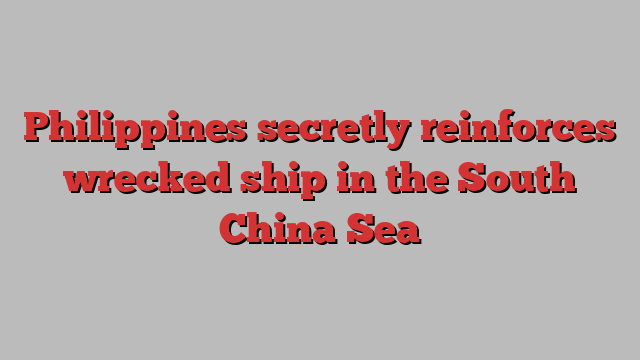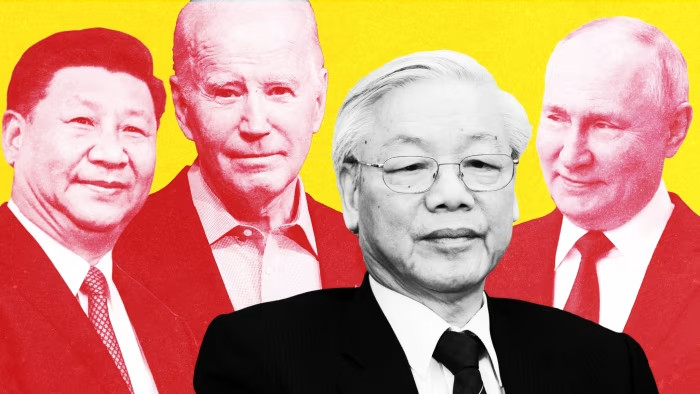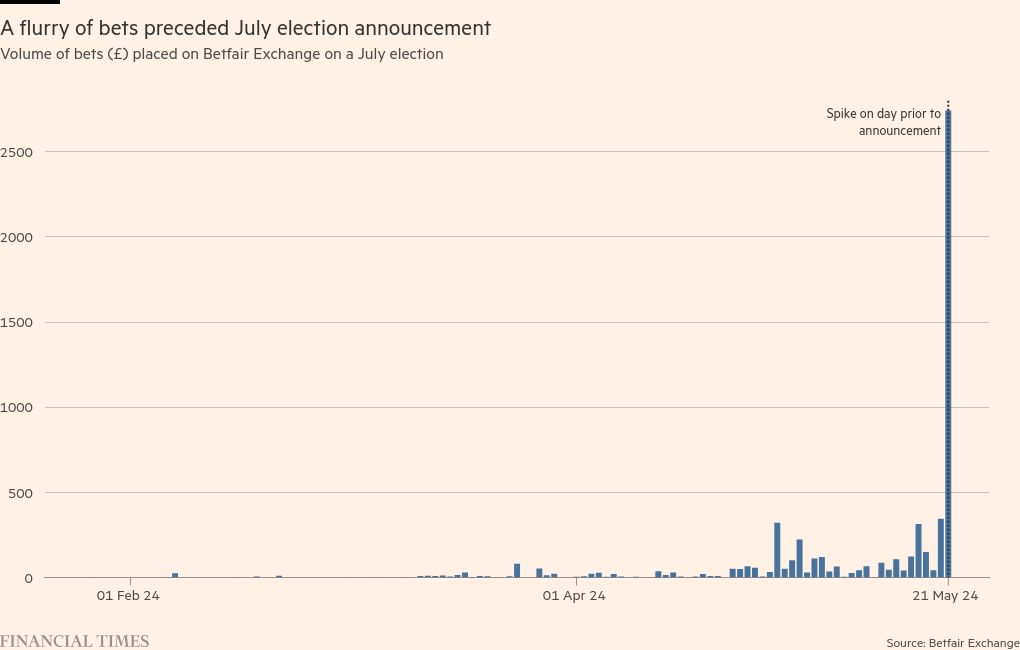
This article is an onsite version of our FirstFT newsletter. Subscribers can sign up to our Asia, Europe/Africa or Americas edition to get the newsletter delivered every weekday morning. Explore all of our newsletters here
Good morning. In today’s newsletter we’re covering:
-
The Putin-Kim pact worrying Asia
-
Vietnam’s “bamboo diplomacy”
-
SoftBank’s voice-altering AI
But we start with an exclusive story — the Philippines has secretly reinforced a dilapidated warship stranded on a South China Sea reef that is central to an increasingly dangerous dispute with Beijing, according to six people familiar with the operation.
In recent months, the Philippine military had conducted missions to reinforce the Sierra Madre, which is lodged on the disputed Second Thomas Shoal in the Spratly Islands, the people said. It did so because of rising concern that the rusting ship was in danger of breaking apart.
The Philippines ran the Sierra Madre aground in 1999 to help reinforce its claim to the reef, over which China also asserts sovereignty as part of an expansive claim — opposed by its neighbours — over most of the South China Sea.
The ship has become the most dangerous flashpoint in the Indo-Pacific. In recent months, China’s coast guard has used increasingly violent tactics — firing water cannons, ramming boats and wielding weapons — to block Manila from resupplying Marines who are stationed on the ship
Zack Cooper, an Asia security expert at the American Enterprise Institute think-tank, said the US and Philippines were “inching closer” to invoking Article V of their mutual defence treaty, which would require them to “meet the common danger”. Read more on the increasingly tense situation around the reef.
And here’s what I’m keeping tabs on today and over the weekend:
-
Economic data: June flash manufacturing PMI is due for Japan, India and Australia. Japan and Hong Kong also report May consumer inflation data, while South Korea publishes the produce price index for the same month.
-
Imperial visit: Japanese Emperor Naruhito and Empress Masako arrive in the UK on Saturday for a weeklong visit.
How well did you keep up with the news this week? Take our quiz.
Five more top stories
1. Japan and South Korea have sounded the alarm over deepening military collaboration between Russia and North Korea after Vladimir Putin and Kim Jong Un signed a far-reaching strategic partnership. Their pact is one of Moscow’s strongest commitments in Asia, including a pledge to provide “military and other assistance” in the event that one of the signatories was invaded or in a state of war.
2. The horrific death of an Indian farmworker in Italy has shone a light on the plight of undocumented migrants employed in the Italian agricultural sector. Satnam Singh died after having his arm severed by a machine earlier this week. His Italian employer left him in a courtyard with his arm placed in a cardboard box next to him, according to local police.
3. The US is pausing the delivery of Patriot interceptor missiles to other nations so it can fast-track orders for Kyiv to bolster its air defences against Russian attacks. The Patriot systems have helped protect key government buildings and critical infrastructure in Ukraine.
4. Mexico’s president-elect Claudia Sheinbaum chose an economy minister seen as business friendly to join her cabinet as she tried to calm investors unnerved by her resounding electoral victory this month. The country is seen as one of the potential beneficiaries as companies seek to build factories closer to the US amid rising tensions between Washington and China over trade.
5. Birth rates in the world’s rich economies have more than halved since 1960 to hit a record low, according to study by the OECD. The organisation urged countries to prepare for a “lower fertility future” that “will change the face of societies”.
News in-depth

Over the past nine months, Vietnam has hosted Joe Biden, Xi Jinping and Vladimir Putin, skilfully balancing geopolitical rivalries in a manner that has eluded other countries. Analysts said Hanoi’s independent foreign policy — “bamboo diplomacy”, as Communist party chief Nguyen Phu Truong calls it — has helped the country cement itself as a vital link in global supply chains, attracting manufacturing investment from companies such as Apple as they look to diversify away from China.
We’re also reading . . .
-
Iran’s reformist presidential candidate: Outsider Masoud Pezeshkian has rattled hardliners by pressing for closer relations with west and a softer stance on the hijab law.
-
‘Baby Macron’: Tossed into an electoral battle triggered by his own boss, 35-year-old French premier Gabriel Attal is the face of a centrist campaign that has just over two weeks to avert a ballot box catastrophe.
-
The Big Read: Despite sanctions, Russian companies are building more than a third of the new nuclear reactors around the world. Here’s how Moscow is using these projects to wield global influence.
Chart of the day
An unusual burst of bets on a July poll preceded Prime Minister Rishi Sunak’s announcement of the UK general election. According to an FT analysis of public market data, the bets included several thousand pounds wagered on the day before the May 22 announcement, when the odds implied a less than 25 per cent chance of an election being called for July.

Take a break from the news
Artificial intelligence was already coming for our jobs; now, SoftBank is working on voice-altering AI that takes the fury out of customer phone calls, writes Leo Lewis.

Additional contributions from Tee Zhuo and Gordon Smith
Recommended newsletters for you
One Must-Read — Remarkable journalism you won’t want to miss. Sign up here
Sort Your Financial Life Out — Learn how to make smarter money decisions and supercharge your personal finances with Claer Barrett. Sign up here